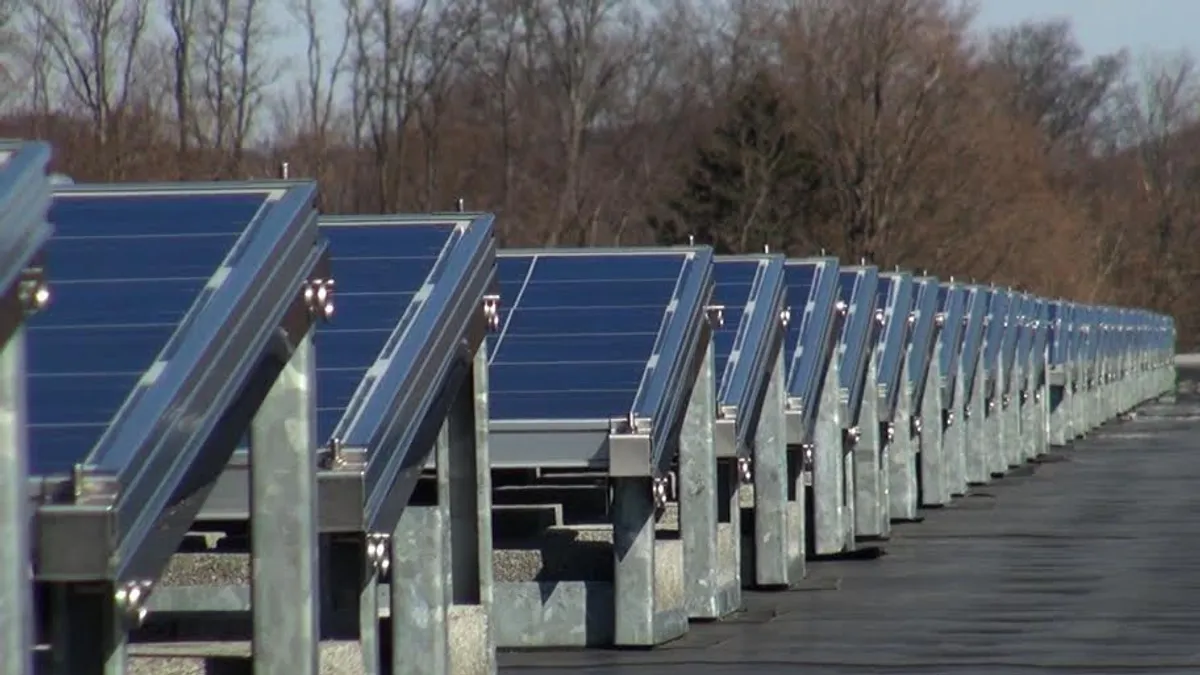Dive Brief:
- Massachusetts lawmakers failed last week to extend the cap on the state's net metering rules for commercial solar installations, and after a conference committee were unable to reach a compromise when the legislature adjourned until January.
- While residential solar, which is not subject to the net metering cap, is expected to flourish in Massachusetts, Greentech Media estimates commercial developments could be reduced by about 100 MW next year.
- The Massachusetts Senate voted over the summer to raise the cap, but the House waited until the session was nearing a close to pass a measure which raised the cap while also deeply cutting the rate paid to solar developers.
Dive Insight:
Massachusetts is a leading market for solar installations, but commercial projects – and in particular, large community arrays – will likely take a hit in 2016 after lawmakers failed to expand the net metering cap.
Jesse Grossman, who heads commercial developer Soltage, said the result could be hundreds of lost megawatts. "The worst thing that a market can do is to introduce timing uncertainty in what has heretofore been an exemplary and orderly market rollout," he told Greentech.
And even if lawmakers return and pass a bill immediately, it is probably too late to undo some of the damage for developers next year. Cory Honeyman, GTM Research's senior analyst for solar markets, expects 100 MW of solar power that would have been developed will now be left on the drawing board.
"Residential solar will be fine in Massachusetts and will continue to grow like gangbusters since it's not subject to the [net energy metering] cap. But commercial solar – and in particular, community solar development – could miss out on over 100 MW of additional development in 2016," he told GTM.
In July, the Senate adopted amendment 18 to state Senate Bill 1973, which would have increased the cap on net metered solar to 1,600 MW, approximately doubling the current 4% of peak electricity load cap on private projects and 5% cap on public projects. But lawmakers in the House and Senate had dramatically different ideas about the future of solar in the state, and subsequently failed to reach a compromise.
CommonWealth Magazine has details on the proposals and the run-up to the failed compromise. The House's package would have slashed the rate paid to developers once the state hits 1,600 MW of installed solar; currently, Massachusetts has about 950 MW installed. Rather than the retail rate, developers would be paid about 5 cents/kWh, about a 71% reduction.
The House bill would also have set minimum electricity bills for consumers.















